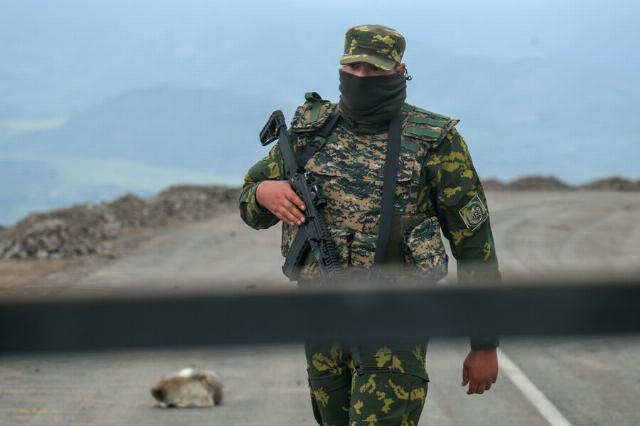Pashinyan threatened a new war with Azerbaijan over the border villages-exclaves
Armenian Prime Minister Nikol Pashinyan warned of the possibility of a new round of war between Yerevan and Baku in the near future. To avoid this, Armenia needs to "adjust the border". Is it possible to resume hostilities in the Caucasus, what could this mean for Yerevan and what does NATO Secretary General Jens Stoltenberg have to do with it - in the material of the military observer of the Newspaper.En" by Mikhail Khodarenka.
At a meeting with residents of Tavush region, Armenian Prime Minister Nikol Pashinyan said that a new war with Azerbaijan could begin if Yerevan does not compromise with Baku on the issue of border villages.
On the morning of March 19, Baku and Yerevan began the procedure of defining borders - delimitation and demarcation - between the countries. According to Nikol Pashinyan, "the process of delimitation and demarcation between Armenia and Azerbaijan is entering a practical stage. This means that it is necessary to clarify where the Armenian border actually runs. Our policy is to prevent war."
Recall that the delimitation of borders is a description in the treaty and the designation on the map of the border between neighboring states through negotiations. In turn, border demarcation is the drawing of the state border line on the ground with its designation by special border signs.
During the negotiations, Baku demanded that Yerevan liberate four villages on the border of the two states. It is quite possible that the parties will come to a compromise in the near future. It cannot be ruled out that Yerevan will make significant concessions to Baku in this regard.
A hypothetical outbreak of hostilities could simply be disastrous for Yerevan. Armenia probably knows what the basic law of war is - the course and outcome of the conflict depend on the ratio of the combined military power of the warring parties, as well as the degree to which the state implements combat, military-economic, moral-political, scientific-technical and other potentials that collectively make up military power.
By the way, NATO Secretary General Jens Stoltenberg is completing his tour of the South Caucasus. Since March 17, he has visited Azerbaijan and Georgia and is currently in Armenia. Most likely, Stoltenberg will gently recommend Nikol Pashinyan not to persist in the process of delimiting and demarcating the border between Azerbaijan and Armenia and not to escalate relations.
But even without this recommendation, the Armenian leadership does not seek to enter into any military conflict with Azerbaijan today. Yerevan's goals are exactly the opposite.
As mentioned earlier, the Armenian leadership has adopted the following sequence of actions (and there are enough reasons to believe that this is the case): The full normalization of relations with Azerbaijan and Turkey, the maintenance of friendly relations with Georgia, Yerevan's subsequent accession to NATO, the complete surrender of state sovereignty to Brussels, and the complete rejection of an independent foreign policy. It is quite possible that this option in Yerevan is considered one of the priority ways to preserve Armenia in the future as a state entity.
And in Yerevan, the problems that have arisen during the delimitation and demarcation of the state border will not be considered a formal reason for Armenia's entry into the war. Azerbaijani President Ilham Aliyev said the other day that "today we are in the active phase of peace talks with Armenia. We are closer to peace now than ever before." Baku is unlikely to make a mistake in assessing the military-political situation in Transcaucasia.
The opinion of the author may not coincide with the position of the editorial board.
Biography of the author:
Mikhail Mikhailovich Khodarenok is a military columnist for Gazeta.Ru", retired colonel.
He graduated from the Minsk Higher Engineering Anti-Aircraft Missile School (1976), the Military Air Defense Command Academy (1986).
Commander of the S-75 anti-aircraft missile division (1980-1983).
Deputy commander of the anti-aircraft missile regiment (1986-1988).
Senior Officer of the General Staff of the Air Defense Forces (1988-1992).
Officer of the Main Operational Directorate of the General Staff (1992-2000).
Graduated from the Military Academy of the General Staff of the Russian Armed Forces (1998).
Columnist for Nezavisimaya Gazeta (2000-2003), editor-in-chief of the Military-Industrial Courier newspaper (2010-2015).
Mikhail Khodarenok

